I consider today’s article a public health announcement; it could save the life of someone you know.
Recently, a bill was passed in California that would require a warning label on soda—warnings that say sodas contribute to diabetes, obesity, and tooth decay. It isn’t a law yet, but it’s a start.
Even though we’ve all known sodas aren’t doing our health any favors for quite some time, it wasn’t until 2005 that soda (and other junk) were banned from public schools, and it’s taken almost a decade since then to make some progress on putting a warning label—similar to the one cigarettes have—on the bottles and cans.
So it’s no secret–bill or no bill, law or no law—that soda is nothing short of horrible for us. And yes, this includes diet soda!
Yet one of the things that shocks me is how prevalent soda drinking still is. It’s still everywhere (and I mean everywhere- I’ve seen soda in tiny villages along the Anapurna Trek in Nepal, the Sahara dessert, Bolivia, you name it!), and it may sometimes seem like there aren’t too many alternatives out there, other than plain water.
In this post, I’m going to break down all the health issues with soda (and again, diet soda is included as well!) and provide some delicious alternatives. If you’re still sipping sodas even once in a while, I encourage you to try some of these new options — you won’t miss soda one bit once you see how much better you feel without it.
The Problem with Ingredients in Sugary Soda
Soda packs in a lot of bad ingredients, all in one place. It’s not just the sugar (though that is a huge problem). There are other unhealthy ingredients that could be lurking inside those bottles, from enamel-weakening phosphoric acid to artificial sweeteners that enhance weight gain rather than slowing it down.
Refined Sugar/High-Fructose Corn Syrup
First, there’s the refined sugar, which is often in the form of high-fructose corn syrup (some sodas have plain sugar in them, but that doesn’t make them good for you). I found an article that discusses how the consumption of HFCS can lead to leptin-resistance in the body, making you gain weight rapidly. Leptin is the hormone responsible for suppressing your appetite and keeping your food intake balanced with how much energy you’re expending. Sounds like something you need, right?
Remember, fructose consumed the way nature intended (it occurs naturally in fruit) isn’t an issue, as it comes with fiber, vitamins and other co-factors that help your body process it without detriment. One the other hand, the amount of fructose that is processed and added to soda (the article says these sweeteners are sometimes 50 percent fructose) is much more concentrated than anything anyone was ever intended to eat or drink.
This particular study was conducted on two groups of rats. Each group started with the same body weight and body fat, and they were fed the exact same things, except one group got high-fructose corn syrup and the other group was fructose-free. After six months, the rats were tested for leptin-resistance, and I bet you can guess what they found. The rats who ate the HFCS were leptin-resistant and the fructose-free rats were not.
The rats that were fed HFCS didn’t respond to the leptin, which means they continued to eat a lot more than they really needed to; the fructose-free rats ate less when injected with leptin.
The crazy thing is, the rats didn’t gain a whole lot of weight before they became leptin-resistant, so even if you’re not packing on pounds right now — if you’re consuming a lot of high-fructose corn syrup, you could be quietly becoming leptin-resistant, which could set you up for health problems later, including weight gain.
Once you gain that weight, you put yourself at risk for obesity-related diseases, like diabetes and high blood pressure. It also makes you feel hungrier.
At best, the sugar (or HFCS) content is empty calories. At worst, it distorts your hormones and makes you eat more than you should, and that can lead to diseases that may have been preventable.
Phosphoric Acid
If you want a pretty smile, soda is not helping your cause. Not only can it stain your teeth (I’ll talk about that in a minute), but the phosphoric acid most of them contain can also damage the enamel on your teeth and contribute to cavities.
Not only can it rob your teeth of their strength, phosphoric acid can weaken the rest of your bones, too. In a study on women’s bone density and cola consumption, researchers found that women who drank the most regular and decaffeinated colas had the lowest bone density. Is a soda habit worth heightening your risk for osteoporosis?
Artificial Coloring
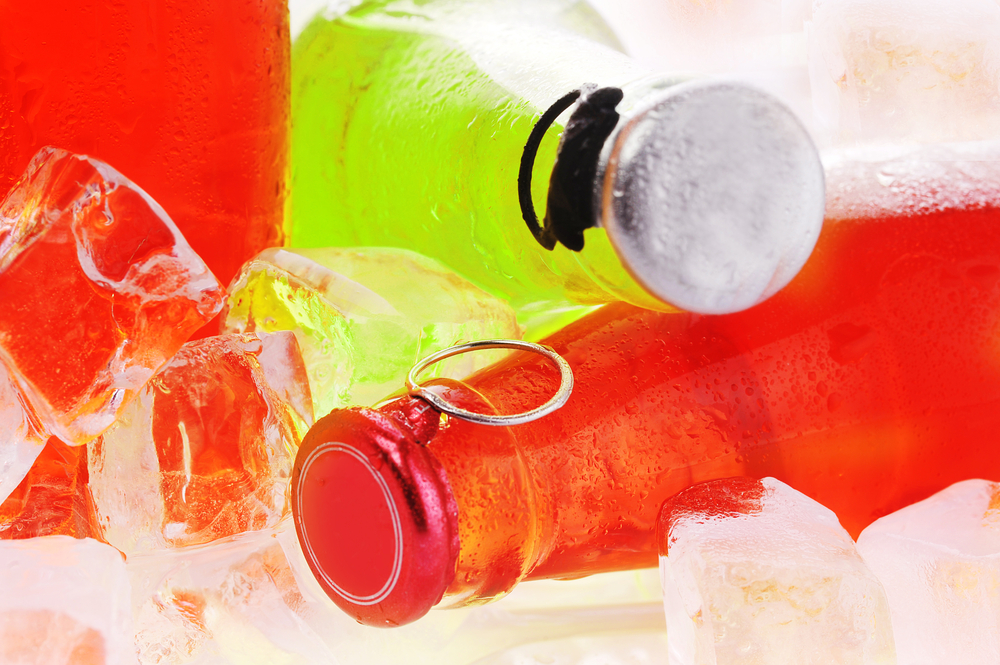
Artificial coloring is often used in sodas. Caramel coloring is one of the major ones, used to darken colas (I still think they are ugly though). It’s also one of the most dangerous. It contains contaminants and has been linked to cancer in male and female mice as well as female rats. The two contaminants present in caramel coloring that has been produced with the help of ammonia have been listed as “potentially carcinogenic to humans” by the World Health Organization.
Other food dyes have been linked to hyperactivity, allergic reactions, and other health issues, especially in children.
Artificial Flavor
Sodas also contain artificial flavors, which you don’t want in your body. Not only are they there, but think about why they’re there—to cover up the flavor of the drink. If not for these artificial flavors, the drink would probably not even be palatable. So what are you drinking? And why would you want to drink something that tastes bad without the help of a lab?
Health Issues Caused By Soda
The list of reasons why nobody should be drinking soda just goes on and on. Here are just a few of the health issues caused by soda:
Obesity
This one was mentioned above. You can’t regularly consume large amounts of refined sugar—especially high-fructose corn syrup—and not gain weight. The sweeteners themselves are high in empty calories, plus they could cause you to overeat on top of that. A Princeton study on rats found that the effects of HFCS on obesity were much worse than even a high-fat diet.
Diabetes
One of the side effects of a soda habit can be type 2 diabetes. A study published in Global Public Health found that the countries with the greatest access to high-fructose corn syrup also had the highest number of cases of type 2 diabetes.
Tooth Decay
Remember what your parents told you about eating too much candy when you were younger? It’ll rot your teeth. The same is true of soda, and if anyone you know has a soda problem, he or she is likely sipping on a 20 oz. bottle for hours each day. That’s a constant bath of high-sugar liquid for their teeth. Beyond the sugar content itself (let’s just say this person is just drinking diet cola), the phosphoric acid is also eating away at the enamel, weakening your teeth and making it easier for cavities to form.
Immunity
You may not know this, but sugar not only steals your beauty, but it depresses your immune system so it’s easier for you to get sick. There are other things you could be drinking that could actually boost your immune system that we’ll talk about soon, and they’re fantastic alternatives to soda. Even as early as 1973, researchers knew how sugar could affect the immune system. In a study published that year by The American Society for Clinical Nutrition, results showed that sugar consumption could compromise the immune system for up to five hours. If you drink soda all day or even a few times a day, when is your poor immune system ever functioning at 100 percent?
Acidity
When I talk about the acidity of soda, it goes beyond the phosphoric acid content. Soda is highly acidic, and an acidic body is a breeding ground for disease. Not only that, but when your body is too acidic, it can lead to a loss of calcium, potassium, and magnesium (in the body’s attempt to neutralize the acid), trouble detoxifying (and in turn, trouble losing weight), disease, inflammation, water retention, and other health and beauty issues.
Believe It Or Not, Diet Soda Just As Bad!
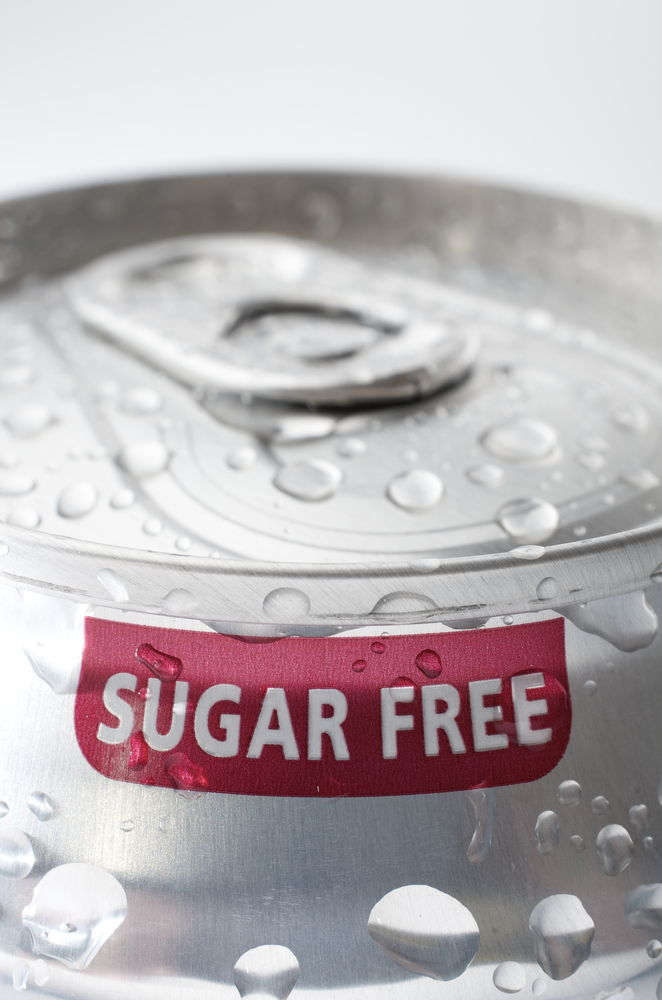
So far, it may sound like the whole soda problem revolves mostly around sugar consumption and by removing that, most of the risks and health concerns are removed. Can you believe that diet soda is just as bad? It is!
Aspartame
What’s usually in diet soda? Aspartame. This is an excitotoxin, which is toxic to the brain. While some groups of people are more susceptible to the damage to the brain caused by these excitotoxins (like children), the average diet soda drinker isn’t immune, either. A study in Neurobehavioral Toxicology and Teratology determined that there are some parts of the brain that could potentially be “silently destroyed” by excitotoxins.
Weight Gain
Just because you’re cutting out high-fructose corn syrup by drinking diet soda, that doesn’t mean weight gain won’t be an issue. Believe it or not, packing on the pounds is just as easy with diet soda as it is with regular. One study published in Appetite found that rats who ate aspartame or saccharin gained more weight than rats fed sucrose. Their diets had the same amount of calories and exercise was restricted for all groups. Isn’t’ that fascinating??
Artificial sweeteners can also lead to more hunger. When you have something with aspartame in it, for example, your body expects calories, too. So the craving is only partially taken care of when you cave and have a diet soda. You may find yourself looking for something to eat, too. In addition to that, giving yourself something that tastes sweet doesn’t do much for ridding yourself of sugar cravings for the long term. The more “sweet” drinks you have, the more sugar you will crave. It’s best not to have them at all, if your real goal is to stop craving sugar.
But it gets worse: In a human study that tracked 474 participants over 10 years, researchers found that subjects who drank two or more diet sodas a day had waist size increases that were six times greater than those of people who didn’t drink diet soda. This was a really shocking study, to say the least!
Acidity
The acidity doesn’t go away when you switch to diet, either. You’re still ruining your beauty and raising your risk of disease by consuming acid-forming drinks regularly. The sugar or artificial sweeteners and caffeine are very acidic. Acidity doesn’t just age you and allow diseases to come in more easily, it decreases your energy levels and makes weight loss more difficult.
Bottom Line, Soda, In All Its Forms, Is to Be Avoided
There’s nothing good to be said about soda whatsoever. It’s fattening, it’s toxic, it’s acidifying, and it leads to more hunger and cravings. It strips minerals from your body, leads to disease, and lowers your immunity.
No matter how enjoyable it may seem in the moment, there’s no good reason to keep it around (kind of like cigarettes, right?). Would you smoke a pack a day and claim it was okay to keep doing so because it was your only vice? Probably not. So why let anyone you know keep drinking soda?
With all of those detrimental side effects that come from drinking soda…could it be any worse?!
Well, actually, yes!
There is one kind of gross, scary detail I left out. According to a 2010 study published by the International Journal of Food Microbiology found that 48% of fountain soda drinks contained fecal bacteria; 11% contained E. coli.
As I’ve been saying on Instagram and Facebook recently, “friends don’t let friends drink soda!”
5 Delicious Alternatives You Can Use Today
The good news is that you or anyone you know who wants to give up soda has plenty of amazing alternatives beyond water. There are plenty of other things you can drink that are delicious, but they’re good for you (or at least not bad).
Here are some alternatives:
1) Glowing Green Smoothie
Admittedly, the Glowing Green Smoothie is nothing like soda, but it is a beverage and it does give you energy (without the caffeine and refined sugar soda uses to do the same thing). Instead of causing you to overeat and maybe crave things you shouldn’t have, the Glowing Green Smoothie reduces cravings instead. It can help you with your weight loss goals because it’s nutrition-rich, packed with filling fiber, and keeps you from reaching for snacks and drinks that are full of empty calories.
2) Natural, Homemade Lemonade
Nothing quite beats the taste of a cold glass of lemonade on a sweltering day, but most of the time, it’s made with so much sugar, it’s a beauty thief just like soda. You can make your own natural, healthy lemonade and even give it a little something extra. Use fresh squeezed organic lemon juice, sweeten with stevia, and add ice. You can switch things up by adding some mint leaves or berries, too.
3) Organic Tea, Hot or Iced
There are so many flavors of tea out there, there has to be at least one you could stand to replace a couple of sodas with each day. Have it unsweetened or sweeten it with stevia (the best choice), coconut nectar, or honey.
Tea is filled with antioxidants, so it’s not only simply not hurting you when you drink it, it’s helping you stay healthy! Some can even help with weight loss and cravings. For example, if you’re craving something sweet, there are teas out there that are sweet without the calories, refined sugars, and fats you might find in another alternative (like soda or a decadent dessert). Personally, I like to make mint tea for friends and family—they love it!
4) Kombucha
This one is probably most likely to be a winner for you if you’re addicted to the fizziness of soda. Kombucha is very fizzy (so don’t shake it up before you open it or you’ll make a mess!). It does have some sugar in it, but it’s mostly converted via fermentation. Check the label to make sure you’re choosing a flavor with less sugar. Kombucha also contains beneficial bacteria, so it’s good for your digestive system. But still, it may be grown from less than ideal ingredients (some of which are transformed to varying extents by the fermentation process), and I don’t recommend drinking a lot of this every day. You can gain the benefits of this drink from Probiotic & Enzyme Salad and taking Probiotics+. But if you do want it daily, have only about 4-8 oz at a time, not the whole bottle.
5) Stevia-Sweetened Soda
Say that three times fast! If you absolutely must have a soda, at least choose one of the ones sweetened with stevia instead of sugar, high-fructose corn syrup, or aspartame. Many health food stores carry sodas like this. For example, there’s Steaz, Blue Sky, and Zevia. Don’t use these as a permanent replacement, but you can use them as a transition drink if it’s really hard to kick the soda habit at first. The stevia eliminates the sugar and the brain-damaging effects of artificial sweeteners in diet soda. I won’t call these “healthy” because they can still be fairly acidic and sometimes come in aluminum cans, but again, they are a good transition
Long-Term Soda Consumption Is Deadly, But It Doesn’t Have to Be
There are so many reasons why soda is a substance that can wreak havoc on the health of anyone who consumes it. We’ve covered why each ingredient is toxic and leads to a cascade of health issues, yet we also covered five delicious alternatives with no side effects—and actual health benefits—that you can have instead.
Try making the switch and see what you think!
Do you know anyone who still drinks regular or diet soda? Please share this with them and anyone you know. Diabetes and obesity are epidemics and there’s no reason for that to continue. By putting a halt to soda consumption, a lot can change.
I hope you enjoyed this and encourage you to let me know your thoughts and questions in the comments below.
Love,
Kimberly

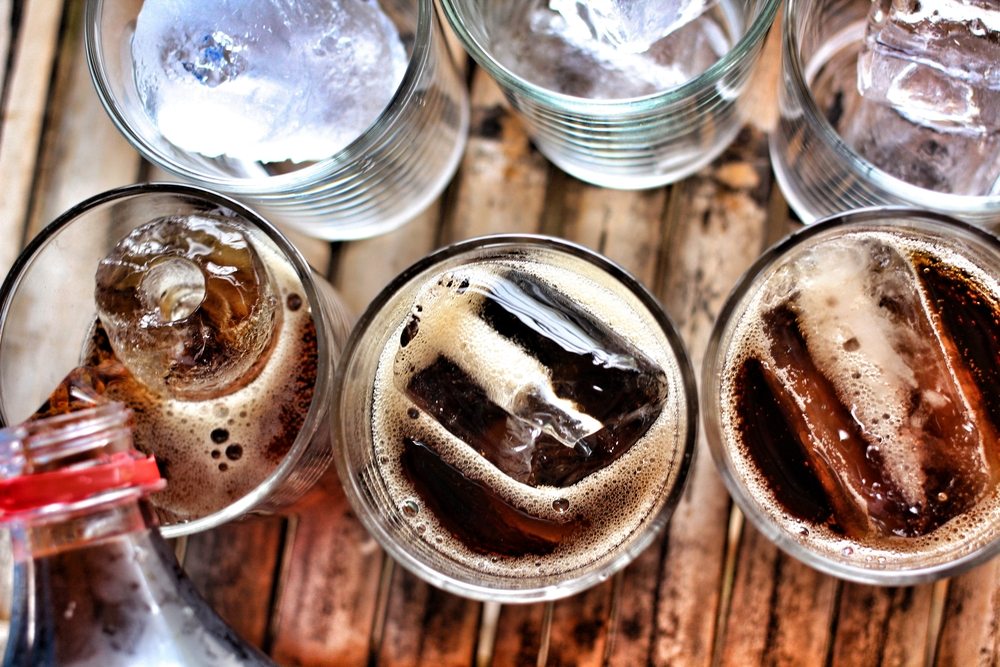
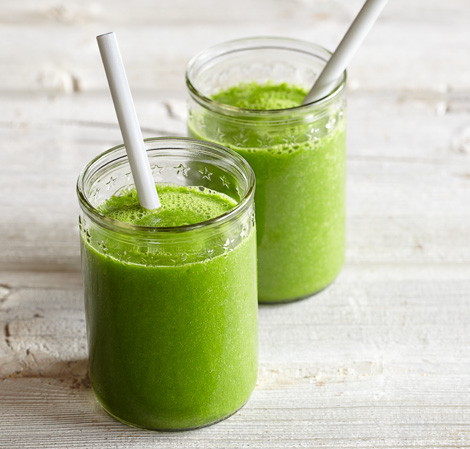
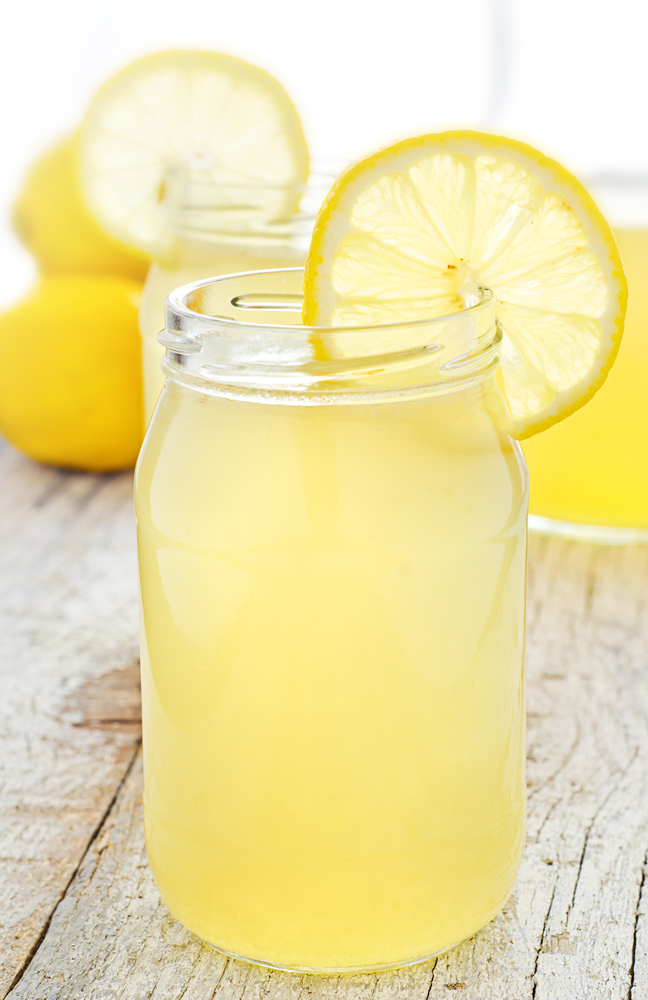
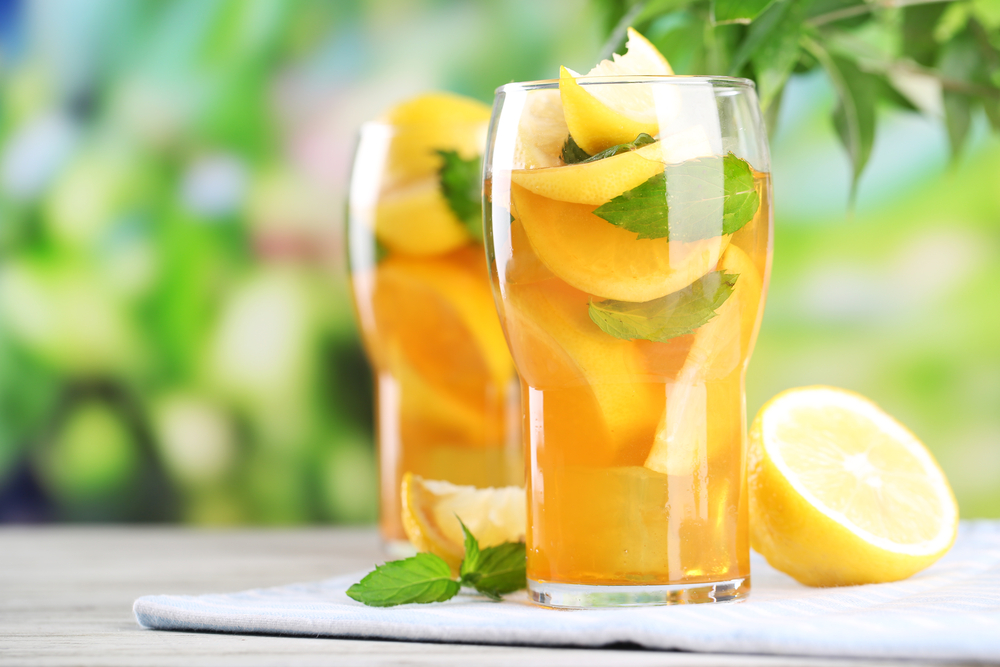
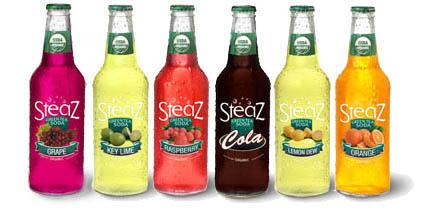

Yikes! Just reading the word aspartame gives me a headache! (I don’t chew gum either because the aspartame or acesulfame potassium gives me headaches too). I have no doubt there is a direct connection with artificial sweeteners in diet soda and neurological disorders.
The first thing I kicked after ready the BDS was soda, regular and diet: it was also the easiest even though I have drank large amounts of soda my whole life (until age 22). Soda is not only ‘not good’, it is really bad and leaves your body much worse off than not drinking it.
Yes, aspartame is so incredibly toxic — wouldn’t touch it with a ten foot pole.